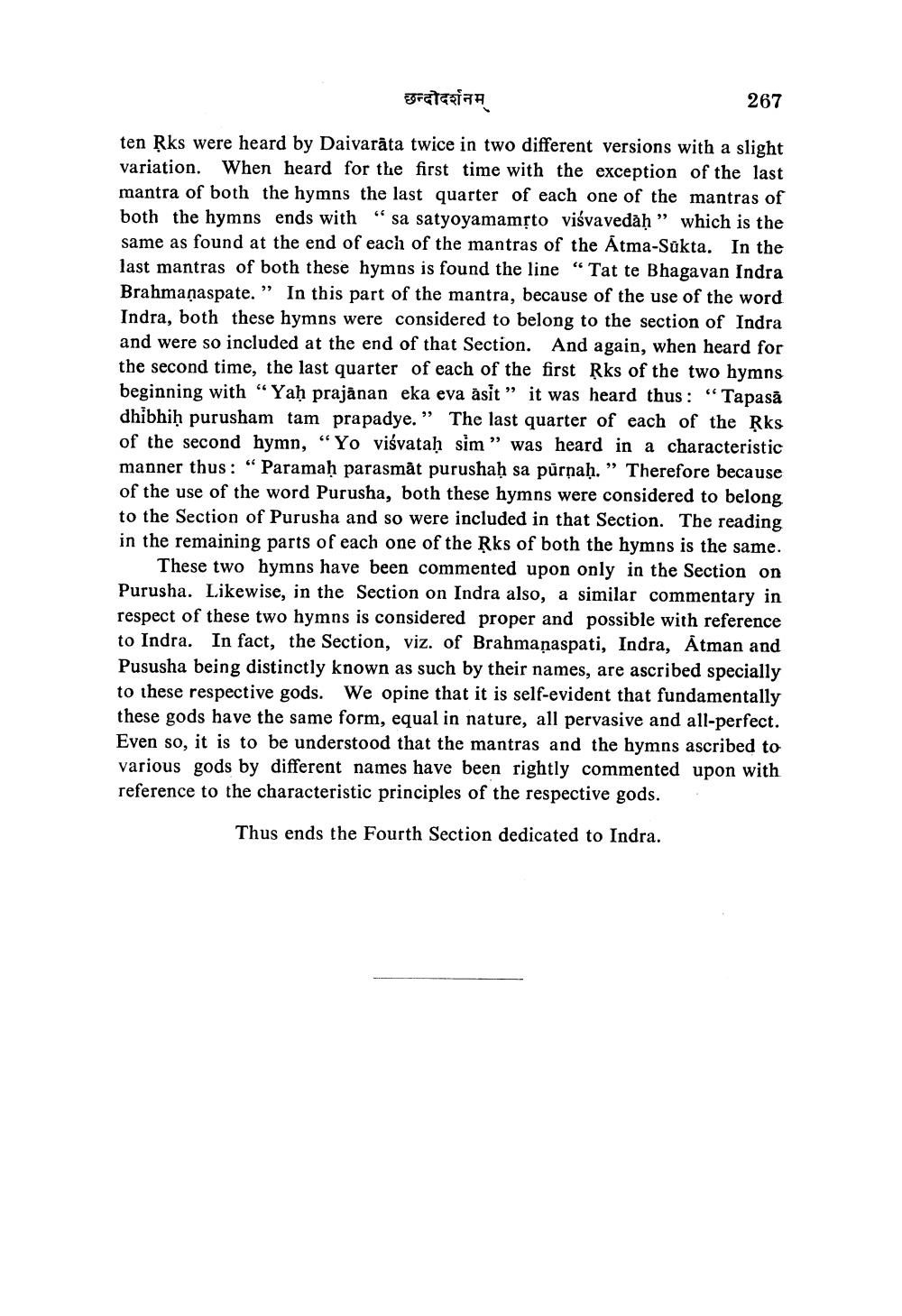________________
छन्दोदर्शनम
267
ten Rks were heard by Daivarāta twice in two different versions with a slight variation. When heard for the first time with the exception of the last mantra of both the hymns the last quarter of each one of the mantras of both the hymns ends with “sa satyoyamamsto viśvavedāḥ” which is the same as found at the end of each of the mantras of the Atma-Sūkta. In the last mantras of both these hymns is found the line “ Tat te Bhagavan Indra Brahmaņaspate.” In this part of the mantra, because of the use of the word Indra, both these hymns were considered to belong to the section of Indra and were so included at the end of that Section. And again, when heard for the second time, the last quarter of each of the first Rks of the two hymns beginning with “Yaḥ prajānan eka eva asit” it was heard thus: “Tapasă dhibhiḥ purusham tam prapadye.” The last quarter of each of the Rks of the second hymn, “Yo viśvataḥ sim” was heard in a characteristic manner thus: “Paramah parasmåt purushaḥ sa purnaḥ.” Therefore because of the use of the word Purusha, both these hymns were considered to belong to the Section of Purusha and so were included in that Section. The reading in the remaining parts of each one of the Rks of both the hymns is the same.
These two hymns have been commented upon only in the Section on Purusha. Likewise, in the Section on Indra also, a similar commentary in respect of these two hymns is considered proper and possible with reference to Indra. In fact, the Section, viz. of Brahmanaspati, Indra, Atman and Pususha being distinctly known as such by their names, are ascribed specially to these respective gods. We opine that it is self-evident that fundamentally these gods have the same form, equal in nature, all pervasive and all-perfect. Even so, it is to be understood that the mantras and the hymns ascribed to various gods by different names have been rightly commented upon with reference to the characteristic principles of the respective gods.
Thus ends the Fourth Section dedicated to Indra.




